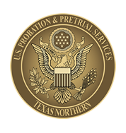SELECTIVE SERVICE REGISTRATION
If you are a man ages 18 through 25 and living in the U.S., then you must register with Selective Service. It’s the law. According to law, a man must register with Selective Service within 30 days of his 18th birthday. Selective Service will accept late registrations but not after a man has reached age 26. You may be denied benefits or a job if you have not registered. You can register at any U.S. Post Office and do not need a social security number.
GENERAL LEGAL HELP AND RESOURCES
Federal Public Defenders Office (contact information and website)
Dallas Bar Association FREE Legal Line (2nd & 3rd Wednesdays from 530-8pm)
Local Legal Aid Organizations
- Texas RioGrande Legal Aid (serving low income persons in southwest Texas)
- Lone Star Legal Aid (serving low income persons in southern and eastern Texas)
- Legal Aid of Northwest Texas (low income-northern and western Texas). Includes FREE Legal Clinics (by location) at various times/locations by appointment.
- Texas State Bar Association
Also, the U.S. Department of Justice is promoting use of Second Chance Act funds for civil legal assistance in handling drivers license renewals, expunging records, responding to inappropriate denials of jobs or housing, violations of the Fair Credit Reporting Act, modifying child support orders, etc. (see related May 2012 press release link here).
ADVOCACY ORGANIZATIONS
Legal Action Center - Your Rights, Your Future - Preparing for Reentry
How to get Section 8 Housing assistance with a criminal record (Legal Action Center)
RIGHTS AND DISCRIMINATION PROTECTIONS
U.S. Department of Justice - Presidential Pardon process and forms
Texas and National Restoration of Rights summaries (The Sentencing Project)
Here's the new EEOC Guidance No. 915.002 (April 2012) outlining restrictions and enforcement of disparate discrimination from employment access for individuals with a criminal record.
Here's some brand new guidance from the Texas Criminal Justice Coalition on implementing the new Texas State House Bill 1188 (83rd Legislature) that eliminates most legal liability for employers simply because they hired someone with a criminal record. Exceptions apply to sexual offenses and certain aggravated offenses.
Additionally the U.S. Department of Labor issued new guidelines (May 2012) for federally-funded workforce development programs throughout the United States to ensure that people with criminal records who seek employment through the programs are not unfairly and illegally shut out from consideration for jobs. The new policy covers nearly 3,000 “One-Stop Career Centers” that provide job placement, training and referral services to unemployed and underemployed workers.
U.S. Housing and Urban Development (HUD) Secretary Housing Non-Discrimination Directive (April 2012) on housing discrimination guidance and protections for those with criminal records, and related details and links.
Know Your Rights - Substance Abuse Recovery (Legal Action Center)
Myths about Restrictions on Access to Public Financial Aid for Education (National Reentry Resource Center)
Many people with disabilities find their biggest challenges are not the actual mental or physical challenges they live with every day , but instead, it is the obstacles of discrimination, ignorance and negative stereotypes about what people with disabilities can — or cannot — do. Disability Rights Texas exists to help people break through these barriers to achieve their personal goals and dreams.
Laborer Rights and Discrimination Protections from the (State of Texas Labor Code) and Employee Rights and Laws listing and links (Texas Workforce Commission)
Here's also an excellent source on Criminal Records and Employment, Protecting Yourself from Discrimination (Legal Action Center)
RAP Sheets (or Criminal Records)....Where They Begin and End (Legal Action Center, National HIRE Network)
Parental Rights of the Incarcerated (Reentry Mythbusters, Council of State Governments)
HELPFUL LINKS
